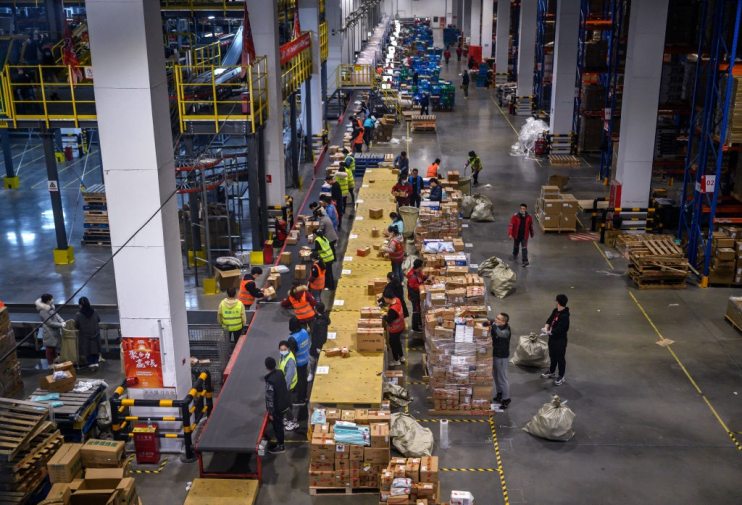Early orders and Singles Day boost: Both Chinese exports and imports pick up steam

European equity markets got off to a solid start to the new week yesterday as investors looked past the negativity of last week and chose to focus on the expectation that the Omicron variant, while more transmissible, may well not be as virulent as the Delta variant that is wreaking havoc across Europe.
“Indications so far still show that it isn’t prompting a big rise in hospitalisations and deaths, raising the hope that while it may be as transmissible as the common cold, that could be as bad as it gets,” commented Michael Hewson, chief market analyst at CMC Markets UK in London.
That hope certainly appears to be what drove yesterday’s market gains, with the FTSE100 hitting its highest levels since 26 November, however as the last week has shown us, while sentiment has been shown to be positive on one day, “it doesn’t take too much to flip it on its head, and turn it negative the next,” Hewson remarked.
Unlike last week, US markets carried on the gains from markets in Europe, led by the Russell 2000, with the Nasdaq lagging, while yields which fell sharply on Friday, recovered most of their lost ground.
China
“The positive tone carried through into Asia this morning, as investors reacted to the 0.5 per cent cut in Chinese reserve requirements yesterday, as well as this morning’s November trade numbers from China, which showed that domestic demand was bouncing back.”
In recent months Chinese exports have held up well due to businesses ordering early so that they can build up their pre-Christmas inventory levels, with machines and electrical goods seeing strong demand.
This recovery trend has continued for the fourth month in a row as exports climbed by 22 per cent, beating expectations of 20.3 per cent.
Imports also picked up, helped by inventory rebuilding as well as decent demand around “Singles Day” rising 31.7 per cent, against an expectation of 21.5 per cent.
“A rebound in coal imports to deal with an energy shortfall as well a higher demand for copper also helped boost the data,” Hewson said.
“As we look towards this morning’s European open, we look set to see another positive start, as we look ahead to some more economic data out of Germany,” he continued.
“Yesterday saw German factory orders data for October undergo a sharp -6.9 per cent decline in October, which suggests that expectations of a rise of 1 per cent in October industrial production, due to be released later this morning, might be wishful thinking.”
“We also have the latest German ZEW investor survey for December, which given the recent declines seen in the DAX, along with the deteriorating health situation across Germany is unlikely to be a positive outcome.”
“The current situation index is expected to fall to its lowest level since June, when it was in negative territory, with a decline from 12.5 to 5.7. The expectations index is also expected to decline from the improvement that we saw in November and could well fall below,” Hewson concluded.